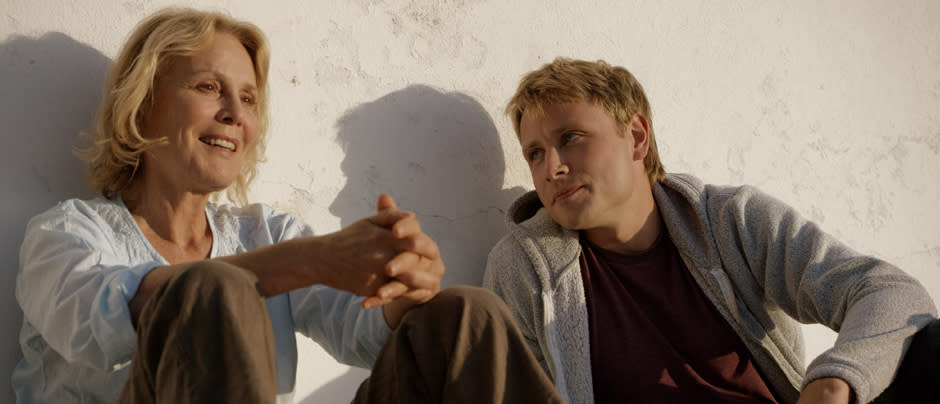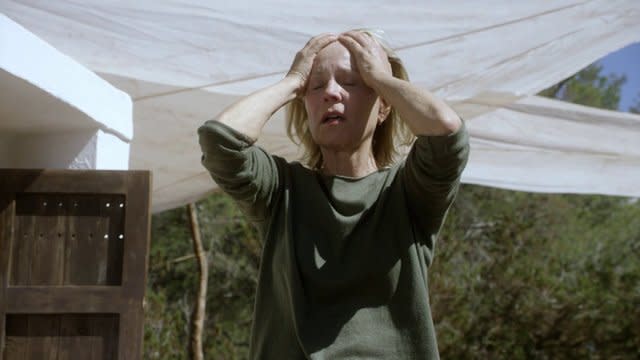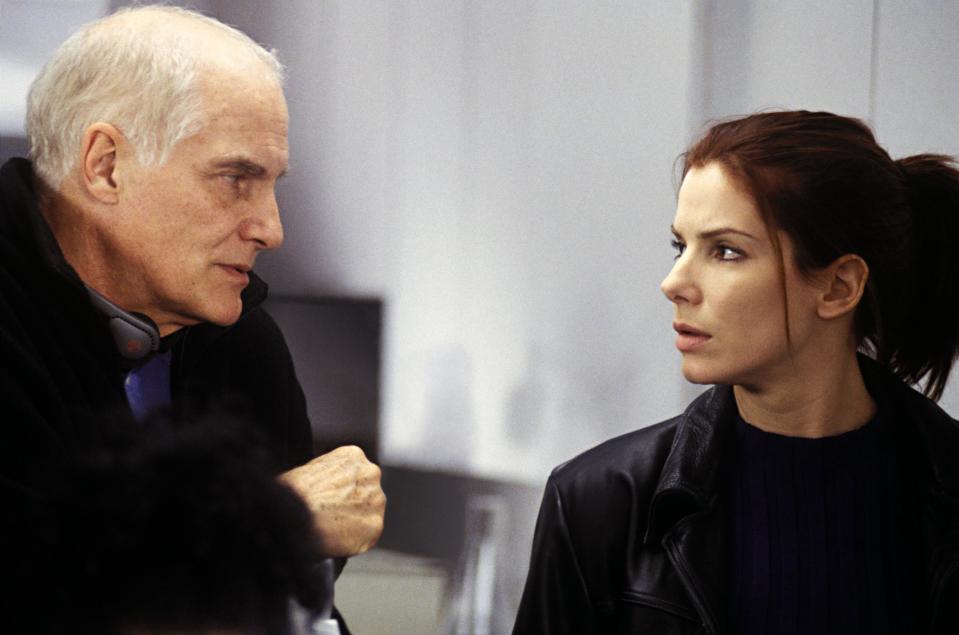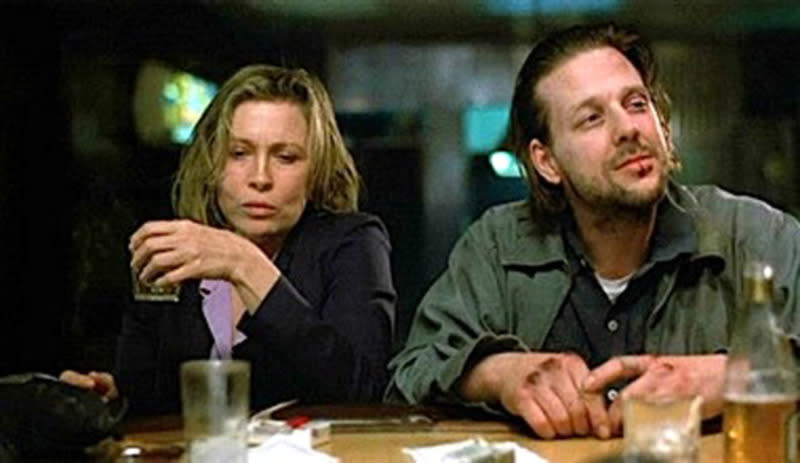Barbet Schroeder On Robert Durst, ‘Amnesia’ & Why He Hasn’t Made A Hollywood Pic In 13 Years – Cannes Q&A

Barbet Schroeder returned to the Cannes Film Festival for Amnesia which played on Tuesday in the Special Screenings section. And while the title sounds like it belongs to the suspense genre Schroeder is known for, Amnesia is quite a departure from the morally ambiguous characters the director has

painted throughout his career (notably Claus von Bulow in 1990’s Reversal of Fortune, which earned Jeremy Irons an Oscar for his portrayal of the leather-loving socialite). A quiet romantic drama, Amnesia is a two-hander about an older German woman (Marthe Keller, of Fedora and Marathon Man) living in Ibiza and yearning to forget her past. Smitten, she opens up to a 25-year old Berlin DJ (Max Riemelt, also about to make a splash in the Wachowskis’ Netflix series Sense8).
Amnesia is a personal story for the 74- year old director, and the third Euro-funded title he’s made since his last Hollywood film 13 years ago, Warner Bros.’ Sandra Bullock thriller Murder By Numbers ($56.7M at the global B.O.). Despite his absence from Los Angeles, Schroeder, who was a protégé of

French New Wave masters Jean-Luc Godard and Jacques Rivette, says he doesn’t have a beef with the major studios. It’s just that they no longer make the adult thrillers and dramas he’s built his career on, such as Reversal Of Fortune, which earned him an Oscar directing nom, and femme doppelganger thriller Single White Female. The latter starred two of the hippest actresses of the ’90s — Bridget Fonda and Jennifer Jason Leigh — and is Schroeder’s highest grossing film stateside at $48M. Then there’s Kiss of Death, a remake of the 1947 film noir title that didn’t send shock waves at the B.O. but is the project that pried David Caruso from hit TV series NYPD Blue into what at the time looked like would be a leading man movie career.
‘If I come to Hollywood tomorrow with Single White Female, they’re going to tell me it’s an arthouse movie. And for me it’s the most commercial movie I did. So how can you have a dialogue with the studios?’
Unlike Euro directors like Roland Emmerich and Wolfgang Petersen, who committed themselves to Hollywood’s tentpole style, Schroeder was able to make films in the studio system that jibed with the themes of his Euro oeuvre: pics that examined the moral and philosophical consequences of antisocial freedom. Though he hasn’t recently churned out any Hollywood films, Schroeder did direct a 2009 Mad Men episode, “The Grown Ups,” which revolves around Roger Sterling’s daughter’s wedding during the weekend following the assassination of JFK. Deadline caught up with Schroeder at uniFrance’s tent in the international pavilion.
DEADLINE: Amnesia is a different movie for you. It’s a romantic drama. It’s not about monstrous killers. It’s not a psychological thriller.
SCHROEDER: It’s a chamber piece movie based on emotion and it’s a love story without sex and it’s completely spiritual. That’s already something quite different. It was difficult to work out. You have to build all kinds of suspense and moments that are unspoken. You have to have good actors and a camera on each of them to see how they react in a given moment. And you have to have the whole mechanism worked out in the dialogue, so you’re not dealing with improvisation.

DEADLINE: Why was Marthe Keller the right actress for the role?
SCHROEDER: She’s a top actress. She belongs to my working family, the Actors’ Studio. She speaks perfect English and perfect German, and she was the perfect age. Basically, she was on a short list. I knew her very well in New York. When I met her for the part, she was much more than I imagined. She responded in an intense way and found resonance in the story. When I put her next to Max Riemelt, it was magic. If one of them broke their legs during production, I would have never replaced them. The movie for me, was with those two actors.
DEADLINE: How challenging is it to put together a European production such as this? Does your producer simply line up the majority of the financing with one country, and then other countries line up? Does it all fall together?
SCHROEDER: It should, but depending on the project. If a project is too weird, too complicated, then you can run into trouble. That’s what happened to me on this one. It was difficult.
DEADLINE: How long did it take to assemble?
SCHROEDER: Two years, and three years for the screenplay. It’s a good chunk of my life devoted to a project that’s so dear to my heart.
DEADLINE: Who put up the majority of the money?
SCHROEDER: Switzerland. It was my current country that made this movie happen. Let’s say this movie has cost me more than any other. I had to fight to give more of myself than for any other film. The project is about my mother. This is the reason why I’m not speaking German. It’s loosely based on my mother.
DEADLINE: Did she have a romantic encounter with a young man like Marthe’s character in the film?
SCHROEDER: Yes, of course.
DEADLINE: It’s been 13 years since you made a studio film. How has the studio system changed since your earlier Hollywood streak?
SCHROEDER: They became tired of making the movies I like. If I come to Hollywood tomorrow with Single White Female to any of the existing studios, they’re going to tell me it’s an arthouse movie. And for me it’s the most commercial movie I did. So how can you have a dialogue with the studios? All the movies I’ve made to date are impossible to make in America.
DEADLINE: The mood has shifted.
SCHROEDER: The mood, and the merchandising and the idea that you have to create an event. It’s all about event movies now.

DEADLINE: As a European filmmaker, what has your attitude been toward the Hollywood testing process for films? I have to imagine Warner Bros. put
Murder by Numbers through test screenings.
SCHROEDER: Every one of my movies went through testing even outside of America, because I need the results to do my editing.
DEADLINE: So as a European filmmaker, you don’t have a problem with the testing process?
SCHROEDER: I’m probably one of the only directors who enjoys doing them because it helps me with editing. I can tell you it was a disaster for me because I wanted to do one on my thriller Inju: The Beast in the Shadow. I needed to have a reaction from the audience. By myself, I organized a preview screening. My [global sales agent] UGC asked me ‘You really want to do that?’ Of course, there were people who came and commented that they didn’t understand certain parts of the film, which always happens. But then UGC decided immediately that the movie wasn’t working. They stopped everything: no more trailers, no more press bookings; not one more cent spent on the film. This is the opposite of what’s done in America. You do a preview and you decide how to make the film better after the audience doesn’t understand certain parts. Here, that test screening killed the movie. I should have never done it.
‘It’s very exciting to be close to something dangerous, like playing with fire.’
DEADLINE: Did you test Amnesia?
SCHROEDER: Of course. Whenever I could assemble an audience of 50 to 100 people. This is why I’m in Cannes. I want to know what the Germans say and think with their checkbooks.

DEADLINE: As a filmmaker, you’ve enjoyed blending documentary with fiction, and you have a penchant for controversial figures like Claus von Bulow
and French lawyer and Nazi defender Jacques Verges. Recently, Andrew Jarecki’s HBO doc The Jinx: The Life and Deaths of Robert Durstintroduced new evidence, and even a possible murder confession, that led to Durst’s arrest. Jarecki may be called as a witness at the trial. What’s your take on this scenario?
SCHROEDER: I’m against making rules that one should never do this or that. I think you need to be in your own conscience. One can’t start judging from the outside. But I think it’s very exciting to be close to something dangerous, like playing with fire. All of this is an exciting and interesting game. Obviously if someone ends up in jail because of you, it’s horrible. It is interesting. There’s a similar documentary case like this with the film The Thin Blue Line. The guy was innocent, but then he sued the director for the movie! So you have all kinds of situations.

DEADLINE: This is your third time at Cannes
. What was the response when you showed the Mickey Rourke-Faye Dunaway film Barfly here?
SCHROEDER: Cannon had already financed it. We did the editing fast [leading up to the festival]. It was intense in order to make the deadline. The sound mixing wasn’t completely perfect. The director of the festival at the time, Gilles Jacob, was hoping that Mickey and Faye would win the best actor and actress prizes. Cannes is the best promotion for a movie. You have all the buyers and directors from festivals around the world.
DEADLINE: What’s your next project?
SCHROEDER: I can’t talk about. But I have a big problem. My problem is that I want to do movies in English. In today’s filmmaking world, I’m always asked to translate one of my English-speaking scripts into French because we can finance it faster. I have screenplays in English that are ready to go, but I can’t do them unless they’re in French or German. Reversal of Fortune was financed by a combination of foreign money. Warner Brothers took it for distribution. And they never believed in it until the film went to the Oscars. And it was too late.
Related stories
Sony Buys FilmNation Pitch 'Amnesia;' Christopher MacBride Helming
'Aquarius' Review: David Duchovny Dominates In Manson-Era Drama
Get more from Deadline.com: Follow us on Twitter, Facebook, Newsletter

 Yahoo Movies
Yahoo Movies 
